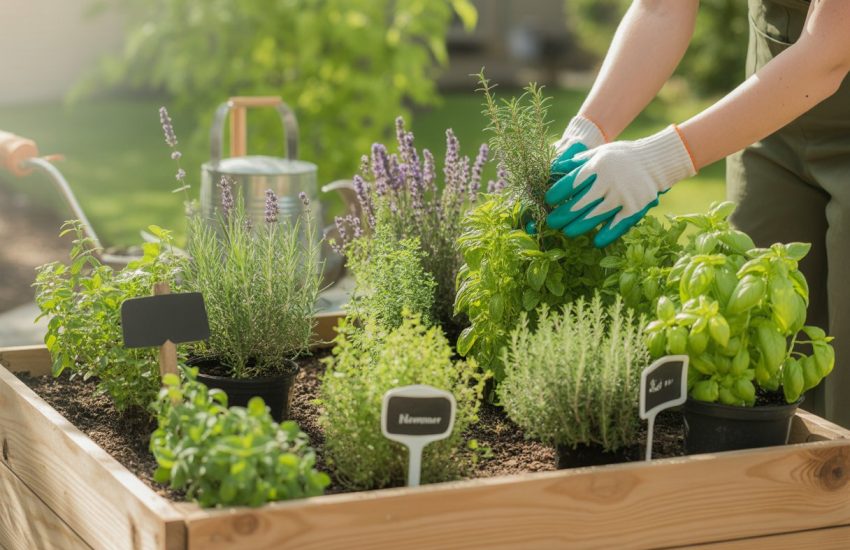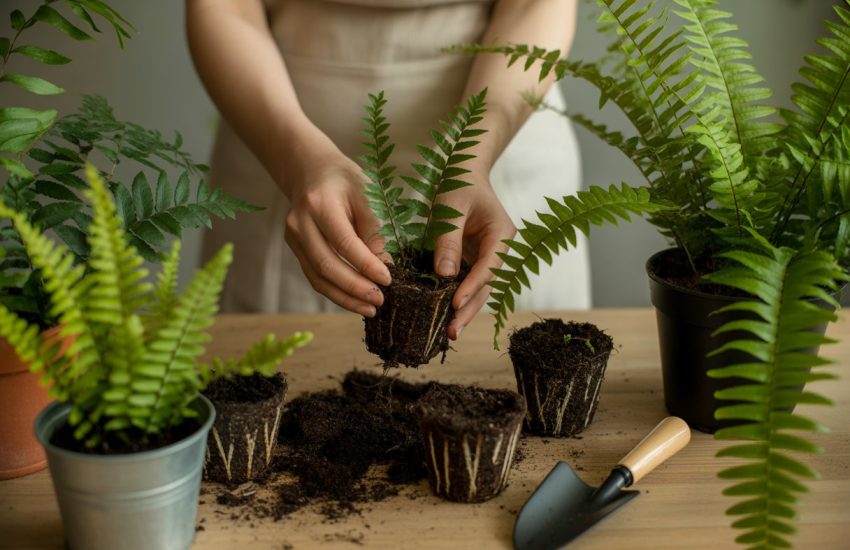Easiest Way to Pick Up Leaves in Flash [Tips & Tricks 2026]
Last updated: February 14, 2026
Rake is a very helpful tool in the world of leaves and their many uses of rake. But there is something about the sound of leaves crunching that just feels satisfying, like you are getting work done. But raking leaves can be a hassle and require more time to do this task, especially if you have a lot of them. So, it’s very important to save your time as much as possible. For saving your precious time and focus on other important things, this blog post will share some tips on how to rake leaves fast and easily so you can get back to your day. Enjoy!
![Easiest Way to Pick Up Leaves in Flash [Tips & Tricks 2026] - PlantNative.org Genius Way To Rake Leaves](https://plantnative.org/wp-content/uploads/2023/04/genius-way-to-rake-leaves-1024x580.jpg)
**Why it’s important to rake leaves fast?**
There are several reasons why it is important to rake leaves fast. Firstly, raking leaves can be a time-consuming and laborious task, especially if you have a lot of them. By speeding up the process, you can free up your time and energy for more important things. Additionally, removing leaves quickly helps prevent any unwanted pests or rodents from taking up residence in your yard, and can help prevent the growth of mold or other moisture-related problems. Finally, raking leaves quickly can help keep your lawn healthy and looking its best, by allowing sunlight to reach all areas of the grass and promoting good air circulation.
Easiest Way to Pick Up Leaves in Flash
Some of the key tips and tricks that you can use to rake leaves fast, including using the right tools, breaking up large piles into smaller ones, and working in a deliberate and efficient manner and some more hacks also included let’s discuss them in detail.
**Rake your Garden in Row:**
One of the simplest and most effective ways to rake your lawn quickly is to do it in rows. Start at one corner of your garden and work towards another, making sure that you overlap each row by a few inches. This will help reduce the time taken for raking and also help you cover more ground in less time.
**Use the Right Tools:**
Another important thing to consider when trying to rake leaves fast is using the right tools for the task. If you have heavy or large piles of leaves, try using a leaf blower instead of a rake, as this can significantly speed up the process by shredding and blowing away all those leaves in no time at all. You can use the following type of tools to speed up raking the leaves:
**Shovels**:
These are ideal for scooping up the leaves and throwing them into a pile or bag. They can also be used to roughly chop larger leaves before using a rake to finish the job.
**Rakes**:
Rakes are essential for getting all of those stubborn leaves out of your garden, so make sure that you have a good quality model with tines (teeth) that will help cut through leaves without getting clogged up.
**Leaf blowers:**
These powerful tools can quickly and efficiently blow away large piles of leaves, saving you time and effort when trying to clear your garden from fallen foliage.
**Breaking up large piles into smaller ones:**
If you have a large pile of leaves, consider breaking them up into smaller piles to make handling and raking easier. This can be done by using a rake, lawnmower, or leaf blower.
**Other Tools and Techniques:**
In addition to the above tools, there are also other ways that you can speed up your leaf-raking process. For example, using mulch to cover over the leaves on your garden bed will help keep the soil moist and prevent the leaves from getting blown away in the wind. Additionally, there are products like leaf bags that can help you quickly collect all of your fallen leaves so that you don’t have to spend too much time gathering them up manually.
**Use tarps to transport the leaves:**
Another way to make your leaf-raking process more efficient is to use tarps to transport the leaves from your yard to wherever you’ll be disposing of them. This will save you a lot of time and effort compared to trying to carry all of the leaves by hand.
**Be mindful of the Wind:**
Finally, it’s important to be mindful of the wind when you’re raking leaves. Be sure to rake in the direction that the wind is blowing, as this will prevent your leaves from getting blown all over your yard and neighborhood.
**Before Rain Rake them:**
If you know that rain is in the forecast, it’s a good idea to rake your leaves before the storm arrives. This will help prevent your leaves from getting stuck to the ground and making it more difficult to rake them up later on.
**Use a Wide “No Clog” Rake:**
When it comes to actually raking the leaves, you’ll want to use a wide “no clog” rake in order to make the job go by more quickly. This type of rake will help you gather more leaves at once and will also minimize the amount of time that you spend dealing with leaves that get stuck in the rake.
**Get rid of the leaves immediately:**
If you want to avoid having to rake leaves again in the near future, it’s important to get rid of them as soon as possible after they fall. Otherwise, they’ll just keep accumulating and you’ll eventually have an even bigger mess on your hands.
**Hire an Expert:**
If you have a particularly large or difficult-to-reach area, it might be worth considering hiring an expert to help with the raking. This can save you both time and effort, as they will be able to quickly and efficiently remove your leaves without any hassle. While raking leaves may seem like a daunting task at first, it doesn’t have to be. Whether you have just a few leaves or an entire yard full, these tips can help you can get the job done quickly and easily so that you can enjoy your autumn days worry-free.
Are Leaf Blowers Faster Than Rakes?
Leaf blowers are generally faster than rakes when it comes to removing leaves and debris from large areas such as yards and driveways. Leaf blowers can quickly and efficiently move leaves and other debris into a pile or into a bag for disposal. They also have the added convenience of being able to blow debris out of tight spaces and corners, where rakes would struggle to reach. However, rakes are typically more gentle on delicate lawns and gardens and are better for small or irregularly shaped areas.
**Conclusion**
Raking leaves can be a time-consuming and difficult task, especially if you have a lot of them. However, there are some ways to make the process easier and faster. In raking leaves fast, you have to learn how to maintain you rake as sharpen and clean. One way is to hire an expert to help with the raking. This can save you both time and effort, as they will be able to quickly and efficiently remove your leaves without any hassle. Another way to speed up the process is to use the right tools for the job. Using a rake with wider teeth can help you cover more ground more quickly, while using a blower can help you remove leaves from hard-to-reach places. With just a little bit of planning and preparation, you can make light work of raking leaves this autumn.
FAQs
Question
Is there an easy way to pick up leaves?
Answer
Yes, there are many easy ways to pick up leaves, including using leaf blowers, rakes, tarps, and specialized tools like leaf scoops or vacuums.
Question
What is the most effective way to pick up leaves?
Answer
The most effective way to pick up leaves depends on the size of your yard and your personal preferences. Common methods include using a leaf blower, rake, or vacuum.
Question
What is the fastest way to rake leaves?
Answer
To rake faster, use a rake with larger tines, that can cover more ground, use your whole body, not just your arms and shoulders. Move your feet and pivot as you rake to cover more area with each pass. Use a smaller rake for tight spaces and for final finish.
Question
How do you pick up large amounts of leaves?
Answer
The best way to pick up a lot of leaves is by using a leaf blower to gather leaves into a pile and then using a rake or lawn mower with a bag attachment to collect them efficiently.
Question
Is it better to rake leaves or leave them?
Answer
It’s generally better to rake leaves as they can smother lawns, gardens and other plants, leading to issues with mold, disease and pests. Leaving leaves on the ground also attracts rodents and insects. Raking them up, composting or mulching them can help to add organic matter to the soil.
![]()
Looking for a nursery that carries native plants?
Browse our native plant nursery directory



I work at a garden center and customers ask about this all the time. Good resource to share.